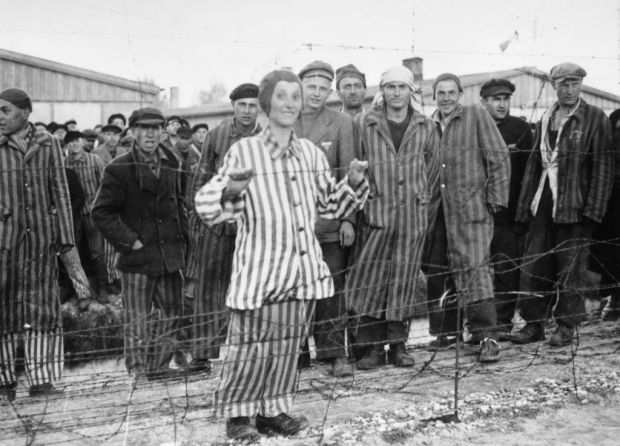The Omicron wave has left European counties standing at a crossroads this year. Despite the relative mildness of Omicron compared to previous variants, several countries have stormed ahead with harsher measures to protect their populations from the virus. In Austria, for example, a vaccine mandate will come into effect on Tuesday, and until last week the unvaccinated had been confined to their homes for over two months. Germany is considering following Austria’s lead and introducing a vaccine mandate too. But other countries are starting to see this less deadly wave as an opportunity to restore normality to society, and are now backing away from some of their more extreme Covid measures. In this it could well be that the Czech Republic leads the way in challenging central Europe’s vaccine and lockdown orthodoxy.
This month a new Czech coalition government announced that it wants to ‘learn to live with’ the virus. It has maintained this stance despite cases spiralling to a record high of 54,685 on Thursday, in a country with a population of just over 10 million. Coercive measures are also slowly being shed. The new coalition government cancelled compulsory vaccination for the over 60s last week, with Health Minister Vlastimil Válek calling the measure ‘nonsense from the start.’ At a press conference, prime minister Petr Fiala suggested compulsory vaccination would only make opposition to vaccines more vehement, saying ‘we do not want to deepen the divides.’ Válek has raised the possibility that Covid jabs will in future be treated similarly to flu vaccines: delivered on a seasonal basis and only to vulnerable groups.
The Czech Republic has also become one of the EU’s first countries to make it theoretically possible for people infected with Covid-19 to continue going to work. Doctors and nurses have the option of a ‘work quarantine’ if patients will be impacted by their absence. If they test positive for Covid they will be allowed to work in healthcare settings as long as they wear a mask, don’t eat with their colleagues and try to limit their contacts as much as possible. Some members of the Czech government are already calling for its scope to be broadened to include other key professions, such as firefighters, police and transport workers.
The proposal to extend ‘work quarantine’ to these other sectors sets out, for the first time, a roadmap towards re-integrating Covid-positive people into society – a step which is also being forecast by the UK government for March. Some health experts are already calling for Covid quarantine to be dropped altogether. This would be the final stage in the country’s attempt to learn to live with the virus, and the government is slowly realising that it’s a step which any country looking to chart a course back to a semblance of true normality will sooner or later have to take.
Not everything is rosy for the country though. The government had hoped abolishing vaccine mandates would start to bring the county back together – but tensions are, if anything, higher than ever. ‘All traitors to the nation and their minions shall end up on the gallows,’ read a placard next to a mock noose set up outside the Czech parliament during protests on Tuesday, as the government looked to extend the nation’s emergency Covid powers until the end of November.
The government may want the nation to learn to live with the virus but it is also insisting that it needs the safety net of emergency powers to be maintained so that future waves, or possible new variants, can be countered. This hasn’t gone down well with protestors, who fear that despite the government’s recent liberal shift, the emergency powers will allow the Czech government to dangle a sword of Damocles over their heads in the form of possible new restrictions – especially on the unvaccinated – far into the future.
Faced with this prospect, and with mandatory jabs now abolished, the anti-lockdown and anti-vaccine movement senses that the time is right to push home its advantage. The unvaccinated – who make up around 37 per cent of the Czech population – continue to bear the brunt of the Covid restrictions, making them all too aware that despite the government’s rhetoric about living with the virus, life is still far from normal.
The charge to undo what’s left of the crackdown on the unjabbed is being led by the Eurosceptic politician Tomio Okamura, who is calling on the government to bring an end to ‘discrimination’ against the unvaccinated. His stance has been backed up by a group of 29 medical students who wrote to the government this week criticising restrictions on the unvaccinated as lacking in rational justification. Having rowed back on coercive measures towards the unvaccinated, the government is now being urged to let them fully re-enter public life.
After flirting with the idea of vaccine mandates, the Czech Republic has taken its first tentative steps back down the road to normality – a road on which Great Britain has led the way. But as European countries chart different paths on Covid, fierce protests in Prague show that attempts to repeal coercive measures are also fraught with potential conflict.
Got something to add? Join the discussion and comment below.
Get 10 issues for just $10
Subscribe to The Spectator Australia today for the next 10 magazine issues, plus full online access, for just $10.



















Comments
Don't miss out
Join the conversation with other Spectator Australia readers. Subscribe to leave a comment.
SUBSCRIBEAlready a subscriber? Log in